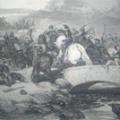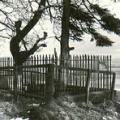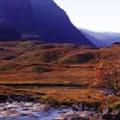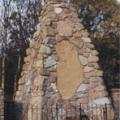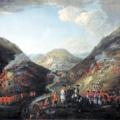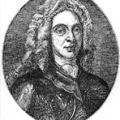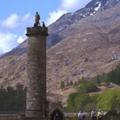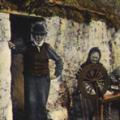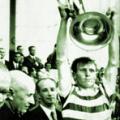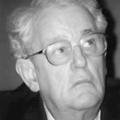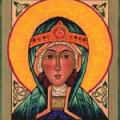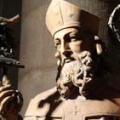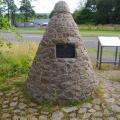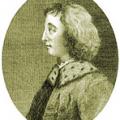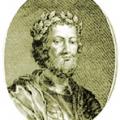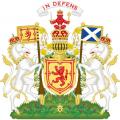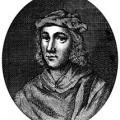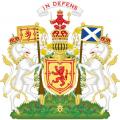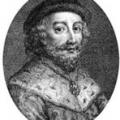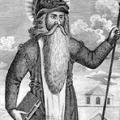Categories
Most Liked
Posted on July 17, 2013
by Amanda Moffet
by Amanda Moffet
Posted on May 12, 2013
by Chas Mac Donald
by Chas Mac Donald
Posted on August 29, 2013
by Amanda Moffet
by Amanda Moffet
Posted on February 6, 2013 by Donald | 1 views | comments
On Philiphaugh a fray began
At Hairhead wood it ended;
The Scots out o'er the Graemes, they ran,
See merrily they bended.
Sir David frae the Border came,
Wi' heart an' hand came he;
Wi' him three thousand bonny Scots,
To bear him company.
Traditional Border Ballad
The Marquis of Montrose had co...
Posted on February 6, 2013 by Donald | 1 views | comments
The covenanting ministers who rejected the Restoration settlement with Charles II’s additions, found themselves replaced by curates and without a living.
The congregations had their own opinions, of course, and some, who became known as ‘Conventiclers’, regrouped to practice the Covenant with the...
Posted on February 6, 2013 by Donald | 1 views | comments
While the other MacDonald clans suffered through the 1500s, the MacDonalds of Glencoe survived notably well. Perhaps their greatest protection was their home environment acting like a natural fortress. They certainly never found the need to build one. Also only the strongest of people could develo...
Posted on February 6, 2013 by Donald | 1 views | comments
On the 6 September 1715, the 6th Earl of Mar, John Erskine, declared himself for James Francis Edward Stewart, the Old Pretender, and left Braemar carrying the Stewart standard to head south to the Jacobites in England. By the end of the month he had taken over Inverness with twelve thousand men b...
Posted on February 6, 2013 by Donald | 1 views | comments
The first Rising had failed by 1716, though skirmishes would continue.
1719 saw what was known as the "little Rising". The only battle of this Rising occurred between a government army led by General Wightman and Jacobites under the 10th Earl Marischal at Glenshiel.
The Jacobite cause was suppo...
Posted on February 6, 2013 by Donald | 1 views | comments
The man credited in the National Anthem with the ability to frustrate and crush rebellious Scots is also the man who brought the first proper roads to the Highlands.
Major-General George Wade was Commander-in-Chief of North Britain from 1724 until 1740, during which time he had military routes ac...
Posted on February 6, 2013 by Donald | 1 views | comments
In 1745 news was received of a powerful new Jacobite force to arrive from the Continent, headed by the grandson of James VII, returning from exile in Italy.
At Loch nan Uamh in Arisaig, Prince Charles Edward Stewart came ashore with only seven supporters, known later as the Seven Men of Moidart. ...
Posted on February 6, 2013 by Donald | 1 views | comments
After a century of being treated worse than the cattle they lost their lands to, the government finally acknowledged that the victims of the Clearances were still being victimised and needed protective legislation.
The Napier Commission studied the situation and put forward recommendations.
Ignor...
Posted on February 6, 2013 by Donald | 1 views | comments
On Thursday 25 May 1967 Celtic Football Club became the first ever british side to lift the coveted European Cup after beating Internacionale of Milan 2-1 at the Estadio Nacionale in Lisbon. The feat itself was great but made even more incredible by the fact that this side was made up, not from in...
Posted on February 6, 2013 by Donald | 1 views | comments
From the Mid 1970's onwards there had been building political pressure towards separate parliaments in both Scotland and Wales. Labour's majority had been whittled down in 1974 and after a series of disastrous by-elections had virtually no majority at all. The Scottish National Party was gaining m...
Posted on February 6, 2013 by Donald | 1 views | comments
In 1997 after nearly 20 years of Conservative rule a labour government swept to power with a landslide victory over largely disorganised opposition. The party had campaigned successfully on the issue of major constitutional reform and among these reforms was devolution for Scotland.
The controver...
Posted on February 6, 2013 by Donald | 1 views | comments
It could be argued that St Margaret was Scotland's greatest female character. Born into a time where Scotland was a lawless and dangerous place St Margaret was a great civilising influence on the country and her legacy exists all over Scotland today.
Margaret was born, possibly in Hungary, in 104...
Posted on February 6, 2013 by Donald | 1 views | comments
The saint most closely associated with the foundation of the city of Glasgow, St Mungo's true story must lie somewhere between fact and legend.
Mungo’s mother was Denw (or 'Tenew' in some versions), his grandfather was a Brythonic king Lleuddun also referred to as King Llew or Loth after which th...
Posted on February 7, 2013 by Donald | 1 views | comments
‘Many a white-headed champion fell into rank around your banner, and many a handsome youth was mangled under horses' hooves...' 'Song to Sir Hector', Eachan Bacach
The execution of King Charles I changed the whole course of the Civil war. The Scots recognized his successor. Cromwell pushed North ...
Posted on February 7, 2013 by Donald | 1 views | comments
Máel Coluim mac Cináeda (Malcolm II) was King of Scots from 1005 until his death. He was a son of Cináed mac Maíl Coluim; the Prophecy of Berchán says that his mother was a woman of Leinster and refers to him as forranach (the Destroyer or Avenger).
To the Irish annals which recorded his death, Má...
Posted on February 7, 2013 by Donald | 1 views | comments
Cináed mac Maíl Coluim was King of Alba. The son of Máel Coluim mac Domnaill, he succeeded Cuilén mac Iduilb on the latter's death at the hands of Amdarch of Strathclyde in 971.
In 973, the Chronicle of Melrose reports that Cináed, with Máel Coluim mac Domnaill, the King of Strathclyde, "Maccus, ...
Posted on February 7, 2013 by Donald | 1 views | comments
Cuilén mac Iduilb was king of Alba from 967 to 971. He was one of three known sons of Idulb mac Causantín, the others being Amlaíb and Eochaid.
It is supposed that Cuilén was implicated in the death of his predecessor Dub mac Maíl Coluim, who had defeated Cuilén in battle in 965.
The Chronicle o...
Posted on February 7, 2013 by Donald | 1 views | comments
Causantín mac Áeda was king of Alba from 900 to 943. He was the son of Áed mac Cináeda and first cousin of the previous ruler, Domnall mac Causantín. Causantín mac Áeda's reign is the second longest before the Union of the Crowns in 1603, exceeded only by William the Lion.
Posted on February 7, 2013 by Donald | 1 views | comments
Áed mac Cináeda (died 878) was a son of Cináed mac Ailpín. He became king of the Picts in 877 when he succeeded his brother Causantín.
The Chronicle of the Kings of Alba says of Áed: "Edus held the same [i.e. the kingdom] for one year. The shortness of his reign has bequeathed nothing memorable t...
Posted on February 7, 2013 by Donald | 1 views | comments
Alexander III, was born at Roxburgh, the only son of Alexander II by his second wife Marie de Coucy. Alexander's father died on 6 July 1249 and he became king at the age of eight, inaugurated at Scone on 13 July 1249.
At the marriage of Alexander to Margaret of England in 1251, Henry III seized t...
Posted on February 7, 2013 by Donald | 1 views | comments
William I "the Lion" (known in Gaelic as Uilliam Garm or William the Rough), reigned as King of Scots from 1165 to 1214. His reign was the second longest in Scottish history before the Act of Union with England in 1707. He became King following his brother Malcolm IV's death on 9 December 1165 and...
Featured Articles
Most Discussed
Posted on July 16, 2013
by Amanda Moffet
by Amanda Moffet
Posted on February 6, 2013
by Donald
by Donald
Posted on July 17, 2013
by Amanda Moffet
by Amanda Moffet


 View More
View More View Less
View Less